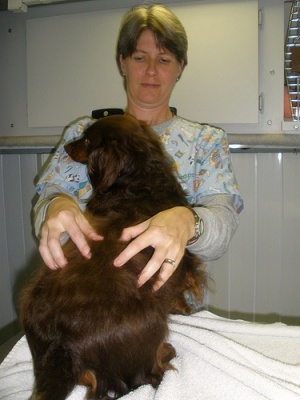
There have been incredible advances in veterinary care over the last few years. However they come at a cost, both financial and emotional. State of the art equipment as well as the use of new drugs and vaccines have become the norm in treating pets, particularly in the field of cancer studies.
Treatment is not limited to technology. The pet is looked at as a whole being, managing diet, supplements and pain and physical therapies when needed.
Sometimes, as pet parents, we may feel veterinarians suggest tests or re-tests to add $$ to the bill. But most vets have your pet’s health and well-being as their primary concern and do not suggest any tests unless they honestly feel they are warranted. That being said, there are situations where tests need to be administered and often repeated.
Even if your pet had a blood test, x-ray, CT scan, etc. last week or last month, there may be changes that often occur quickly which can indicate a problem. You can and should question why another test is necessary, but with a pet who is ill, sometimes comparisons with earlier tests can make the difference in treatment and discovering whether or not there is any improvement in the condition.
By all means ask your vet if a test or re-test is necessary. Discuss with your vet the choice of test for the particular ailment. Ask about the pros and also cons if any of the test. Ask if your pet must be anesthetized for the test. All information you can give your vet helps to determine whether the test is warranted.
Dr. Phil Zeltzman, renowned veterinary surgeon, describes in his recent newsletter some of the tests and what they are used for.
Blood tests – a CBC-chemistry (complete blood count) checks white blood cells, red blood cells and platelets, kidney and liver function. For older pets, sometimes thyroid hormone levels are added. Dr. Zeltzman recommends a yearly or twice yearly CBC.
Blood tests are administered for specific, suspected conditions – diseases such as thyroid, kidney, liver, Cushing’s and Addison’s.
If a pet has to undergo anesthesia, blood work can make it safer. According to the results, vets can make changes in anesthesia used.
X-rays are used to diagnose certain conditions – fractures, tumors, metastases, blockages, check healing bones, etc.
Ultrasound is used for suspected problems in heart, lungs, intestines, liver, spleen and kidneys.
A fine needle aspirate is used to remove a small amount of cells from a mass and examine them microscopically.
A biopsy uses a larger needle to remove a small amount of tissue for diagnosis.
Biopsies are performed on masses that have been surgically removed to check if they are benign or cancerous.
A culture or sterile swab is taken to determine if there are any bacteria present and type them.
These are by no means all the tests available, but they are the most common.
Please join Dr. Zeltzman at www.Dr.PhilZeltzman.com and glean information and knowledge of timely issues concerning our pets.
Remember that you are your pet’s No. 1 advocate and should have all the necessary information to keep your pet healthy.

